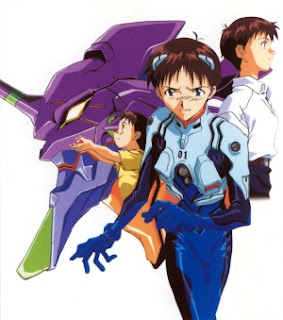As talked about in Salter & Blodgett (2017), the term "geek" is a very US-centric term which refers to STEM-oriented adolescents or young adults who stereotypically are socially awkward, timid and unconfident, as typically opposed to a "jock," who is masculine, popular and athletic. However, the negative connotations of "geek" slowly become more complicated and is shifting towards a neutral meaning with the expansion of technology and the emergence of figures like Steve Jobs or Bill Gates, who have been enjoying more fame and reputation for "pushing the development" of technology in the modern world. On the other hand, the stigmatization of geeks are not entirely removed by such figures. The geeks' own struggles with their identities and their ideal "heroes" in games, manga and movies who are masculine still is very much present in their communities as well as in their age groups, as people are expected to be mature, sociable and confident as they grow up into adulthood. This struggle of geek masculinity is not limited to America, despite its US-centric nature, but expands into parts of the world where technology has become the primary source of production and entertainment, such as Asia. The predicaments of the Asian version of geeks, or "otaku," is very well represented in the classic Japanese anime Neon Genesis Evangelion.
 First, the concept of an "Otaku" is even with more negative connotations than a "geek." The word "Otaku" inherently has an implication of being a awkward and socially inept social outcast who is obsessed with the virtual world with gaming, manga and anime, while some (but not all) dedicate themselves to technology. The story of Neon Genesis Evangelion depicts such a timid, unconfident character named Shinji with a weak and insecure personality, who in the original project was more mature, robust, and less introverted than the final version; he should also have been portrayed as a studious boy, a "quiet A-student". His scholastic conduct would not be seen in a positive light, but as a sign of passivity.
First, the concept of an "Otaku" is even with more negative connotations than a "geek." The word "Otaku" inherently has an implication of being a awkward and socially inept social outcast who is obsessed with the virtual world with gaming, manga and anime, while some (but not all) dedicate themselves to technology. The story of Neon Genesis Evangelion depicts such a timid, unconfident character named Shinji with a weak and insecure personality, who in the original project was more mature, robust, and less introverted than the final version; he should also have been portrayed as a studious boy, a "quiet A-student". His scholastic conduct would not be seen in a positive light, but as a sign of passivity.
Female characters in Neon Genesis Evangelion are also examples of how females can be portrayed as equals to the male, geeky protagonists but at the same time serve only as typical peripheral characters as suggested in Salter & Blodgett (2017). In a general sense, they exist as motivations and lessons to be learned by Shinji instead of having their own agency to be at the center stage. Though there is no direct harm done to the women by the protagonist per se, Shinji’s growth is often accompanied by the deaths of the female characters that he develops transference or affections to. In this sense, though Rei and Asuka are both able to pilot the mechas as well as Shinji could (i.e. as technologically and mentally capable), they still seem to serve as subservient, peripheral, stereotypical female characters that do not really share equality with Shinji.
Neon Genesis Evangelion takes the gaze of society upon geeks and otakus and makes it a tangible crisis to be perceived and suffered from by a typical geeky character. The forcible growth of Shinji is also what is forced on every person who resembles him in real life. However, the idea of becoming mature, masculine and competitive may be an important motif for stories in 1995 when Neon Genesis Evangelion first came out when the narrative competition equals good were rampant with the rise of neoliberalism and fierce economic competition, but is it necessarily as threatening now in 2021 with tolerance as one of the most desired quality? In an era when geeks can be at the center stage of TV shows and technologies are creating more values than physical manpower ever could, maybe there is no longer any monsters out there for people like Shinji to fight, and the gaze of society for geeks to be more masculine and athletic is merely Don Quixote charging at the windmill.
Yuheng
References
Salter, A., & Blodgett, B. (2017). Introduction: Actually, it's about toxic geek masculinity.... Toxic Geek
Masculinity in Media. DOI: 10.1007/978-3-319-66077-6_1.
Wikipedia contributors. (2021, October 15). Neon Genesis Evangelion. In Wikipedia, The Free
Encyclopedia. Retrieved 20:15, October 16, 2021, from
https://en.wikipedia.org/w/index.phptitle=Neon_Genesis_Evangelion&oldid=10501242,31

No comments:
Post a Comment